Filter by

Global governance in a world of change
Global governance began in the mid-nineteenth century and accelerated after the First World War. But it came of age in the post-Second World War era. In response to the lessons learned from the collapse of international order between the wars, and the need to rebuild after the devastation wrought by the Second World War, states, with the USA in the lead, set out to create a new and comprehe…
- Edition
- -
- ISBN/ISSN
- 9781108843232
- Collation
- pages cm
- Series Title
- -
- Call Number
- 341.2 BAR g
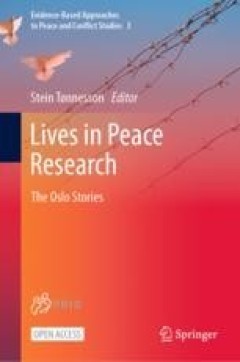
Lives in peace research
This open access book explains how PRIO, the world’s oldest peace research institute, was founded and how it survived through crises. In this book, twenty-four of its researchers and associates, including Johan Galtung, Ingrid Eide, and Mari Holmboe Ruge, who founded the institute back in 1959, tell the stories of their roles in inventing and developing peace research. They reflect on their p…
- Edition
- -
- ISBN/ISSN
- 9789811647178
- Collation
- xx; 508 PG; ill.
- Series Title
- Evidence-Based Approaches to Peace and Conflict Studies
- Call Number
- 327.172072 LIV l

From bilateral arbitral tribunals and investment courts to a multilateral inv…
This open access book considers the potential setup for a future Multilateral Investment Court (MIC). The option of an MIC was first discussed by the EU Commission in 2016 and has since been made an official element of the EU Common Commercial Policy. In 2017, UNCITRAL also decided to discuss the possibility of an MIC, and on 20 March 2018, the Council of the EU gave the EU Commission the manda…
- Edition
- 2
- ISBN/ISSN
- 9783662597323
- Collation
- xiv; 222 pg.
- Series Title
- -
- Call Number
- 346.092 FRO f
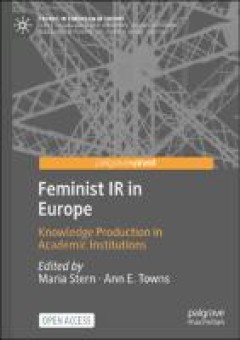
Feminist IR in Europe : knowledge production in academic institutions
The aim of this open access book is to take stock of, critically engage, and celebrate feminist IR scholarship produced in Europe. Organized thematically, the volume highlights a wealth of excellent scholarship, while also focusing on the politics of location and the international political economy of feminist knowledge production. Who are some of the central feminist scholars located in Europe…
- Edition
- -
- ISBN/ISSN
- 9783030919993
- Collation
- ix, 174 p.
- Series Title
- -
- Call Number
- 327.0704 STE f

Framing global mathematics
This open access book is about the shaping of international relations in mathematics over the last two hundred years. It focusses on institutions and organizations that were created to frame the international dimension of mathematical research. Today, striking evidence of globalized mathematics is provided by countless international meetings and the worldwide repository ArXiv. The text follows …
- Edition
- 1st
- ISBN/ISSN
- 9783030956837
- Collation
- ccclxxxiv, 20p ; ill
- Series Title
- -
- Call Number
- 372.7 NOR f
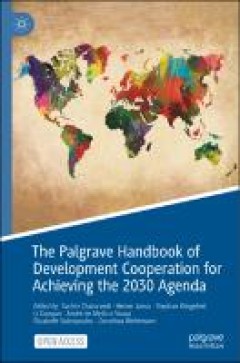
The palgrave handbook of development cooperation for achieving the 2030 agend…
This open access handbook analyses the role of development cooperation in achieving the 2030 Agenda in a global context of ‘contested cooperation’. Development actors, including governments providing aid or South-South Cooperation, developing countries, and non-governmental actors (civil society, philanthropy, and businesses) constantly challenge underlying narratives and norms of developme…
- Edition
- -
- ISBN/ISSN
- 9783030579371
- Collation
- xxxii, 730 p.; ill
- Series Title
- -
- Call Number
- 338.927 CHA t

International organizations in global social governance
This open access book enhances and systematizes our understanding of IOs in global social governance. It provides studies on a variety of social policy fields in which different, but also the same, International Organizations (IOs) operate. The chapters shed light on IO involvement in a particular social policy field by describing the population of participating IOs; exploring how a partic…
- Edition
- -
- ISBN/ISSN
- 9783030654399
- Collation
- xxvii, 353p. : ill.
- Series Title
- -
- Call Number
- 327.06 INT i
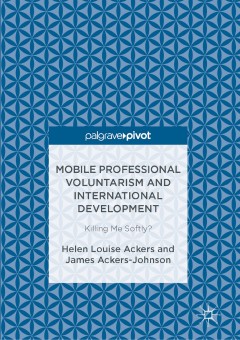
Mobile professional voluntarism and international development : killing me so…
This book explores the impact that professional volunteers have on the low resource countries they choose to spend time in. Whilst individual volunteering may be of immediate benefit to individual patients, this intervention may have detrimental effects on local health systems; distorting labour markets, accentuating dependencies and creating opportunities for corruption. Improved volunteer dep…
- Edition
- -
- ISBN/ISSN
- 9781137558336
- Collation
- xv, 173p. : ill.
- Series Title
- -
- Call Number
- 320 ACK m
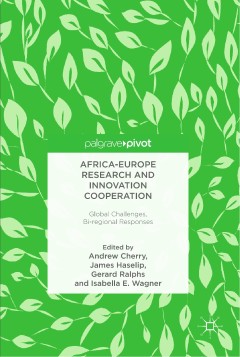
Africa-Europe research and innovation cooperation : global challenges, bi-reg…
This edited volume is concerned with the evolution and achievements of cooperation in research and innovation between Africa and Europe, and points to the need for more diversified funding and finance mechanisms, and for novel models of collaboration to attract new actors and innovative ideas. It reflects on the political, economic, diplomatic and scientific rationale for cooperation, while als…
- Edition
- -
- ISBN/ISSN
- 9783319699295
- Collation
- xxxi, 147p. : ill.
- Series Title
- -
- Call Number
- 507.206 AFR a
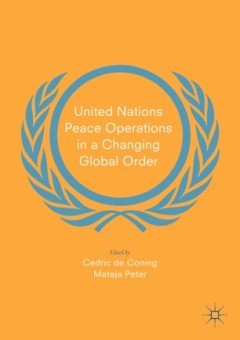
United Nations peace operations in a changing global order
This open access volume explores how UN peace operations are adapting to four trends in the changing global order: (1) the rebalancing of relations between states of the global North and the global South; (2) the rise of regional organisations as providers of peace; (3) the rise of violent extremism and fundamentalist non-state actors; and (4) increasing demands from non-state actors for greate…
- Edition
- -
- ISBN/ISSN
- 9783319991061
- Collation
- xxv, 334p. : ill.
- Series Title
- -
- Call Number
- 341.584 UNI u
 Computer Science, Information & General Works
Computer Science, Information & General Works  Philosophy & Psychology
Philosophy & Psychology  Religion
Religion  Social Sciences
Social Sciences  Language
Language  Pure Science
Pure Science  Applied Sciences
Applied Sciences  Art & Recreation
Art & Recreation  Literature
Literature  History & Geography
History & Geography